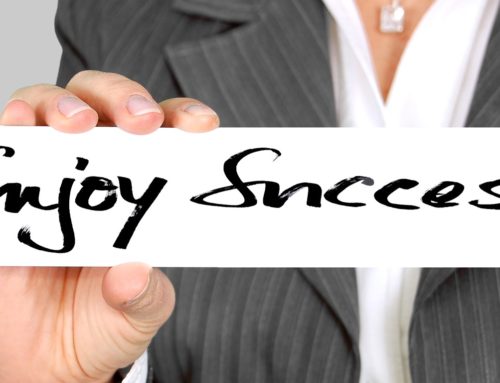Guest Post by Niraj Ranjan Rout
We have many leaders, many managers, many winners. What we don’t have are enough strategic thinkers who can lead people and make the right decisions with the bigger picture in mind, for organizations and maybe even the world.
In my experience, there are some common habits we have that can dampen our ability to think strategically. Countering them can help us develop and nurture our strategic thinking skills. Here are a few:
1. Focusing too much on ”˜finishing’ a task and short term results.
The goal is not to get things done, it is to get things done right and well. Have you heard of the phrase “sometimes you have to lose to win?” That is strategy. Sometimes you need to make tough calls and leave things undone, or lose a game on purpose to get the ultimate win. This is a very difficult concept for people who are hell bent on finishing and seeing tasks through.
The Philadelphia 76ers made a very unconventional call by deciding to lose games on purpose to bag a bigger win. The idea was to trade their top players and build future stars in the interim. Instead of focusing on bringing victories home, they focused on bringing the spoils of victories home. I can’t say that this strategy will always work, nonetheless it’s a great example of how strategy can give you a better shot at success than trying to achieve a mediocre number of wins.
Takeaway: Leave short-term productivity goals to your team members while you take care of the long-term ones, as it is the long-term ones that need a good strategic thinker.
2. Romanticizing ideas and plans.
Have you ever been in a situation where your inner strategic thinker is telling you time and again that you gotta kill that project, but you are so romantically involved with it, since you designed and built it from the scratch, that you fail to heed to those words of caution? This is the perfect way to kill your inner strategic thinker. It is natural for humans to form cognitive bias towards our own ideas and plans, but the toughest job is to know when to let go and cut off the arm.
At my startup Hiver, we follow a 3 month rule. Every new major thing we start working on – be it a new sales strategy, a new marketing strategy, or major changes in product positioning or functionality – takes a fair bit of time to start showing effect. Until then, we keep what we like to call our ”˜critical mode’ on, where one member of the team always keeps analyzing how the plan can possibly fail and getting a plan B or new versions of plan A ready. Only after we see hard results after 3 months, do we let ourselves relax and go on with the plan.
Takeaway: In the world of business, an idea/project is just an idea/project, nothing more. Don’t give it life.
3. Ignoring new perspectives and change.
However high a position we hold, narrow-mindedness affects all of us sometimes, and it’s particularly bad if you want to develop your strategic thinking. Why? Because by shutting out new perspectives, you run the risk of not factoring in other elements which you have failed to see.
One example is Blackberry’s failure. This mobile giant didn’t keep up with the changing world; even though they knew the whole world was moving towards touch screens, they insisted on manufacturing keypad style phones. One way to force yourself to entertain new perspectives is by having discussions with your team members and colleagues whom you trust, and listening to what they have to say before making a call.
Takeaway: “There is nothing so useless as doing efficiently that which should not be done at all.” ~Peter Drucker
4. Indecisiveness
How can you decide on a strategy when you can’t decide on a course of action? To be able to think strategically, your mind should be set on a final goal. Napoleon said, “Nothing is more difficult and therefore, more important than to be able to decide.” Here’s why indecisiveness can affect your ability to think strategically:
- Your mind is unclear when you are not sure of your choice.
- Indecisiveness leads to impatience, which in turn will lead to bad calls.
- When as a leader you fail to decide, you are under scrutiny and this will lead you into “flight or fight,” mode and cause you to ignore the bigger picture.
Takeaway : If you have the executive yips frequently, work on that first before you work on strategic thinking skills.
5. Not nurturing your peripheral vision.
A leader should be able to anticipate possible dangers. Most organizations and leaders look directly ahead, which would be a great plan if we were living in a two-dimensional world. But we don’t. Things keep coming at us from all directions… like market changes, changes in the political systems, oil spills, raw material prices and much, much more.
We cannot predict the future, but a strategic thinker has to be quick enough to anticipate the impact of such changes, and take action before the impact is felt. Here’s what you can do:
- Keep an eye out for game changing information from events happening in the world.
- Build wide networks in all industries to have a front row access to information.
Takeaway : Not working on developing the ability to look for danger on all fronts can by default disqualify you from becoming a strategic leader and thinker.
I’ll end with this quote as food for thought:
“I need you to be clever, Bean. I need you to think of solutions to problems we haven’t seen yet. I want you to try things that no one has ever tried because they’re absolutely stupid.” ~Orson Scott Card, “Ender’s Game”
Image by Tachina Lee via Unsplash, CC Zero
 Niraj Ranjan Rout is the founder of Hiver (formerly GrexIt), an app the lets you share Gmail labels with other Gmail users. Niraj works on programming, customer support and sales, and also contributes to design and UI. He’s a fusion music aficionado who loves to play the guitar when he can.
Niraj Ranjan Rout is the founder of Hiver (formerly GrexIt), an app the lets you share Gmail labels with other Gmail users. Niraj works on programming, customer support and sales, and also contributes to design and UI. He’s a fusion music aficionado who loves to play the guitar when he can.









ginidietrich shonali yes!
mitchellfriedmn shonali Somehow we need to find a way for all three of us to be in the same room
shonali ginidietrich the two of you in the same tweet!!! Oh joy!!!
ginidietrich U0001f618
shonali â¤ï¸
ginidietrich TYVM for sharing nirajr guest #WUL post!
profkrg TYVM for sharing nirajr guest #WUL post!
profkrg nirajr shonali So good!!